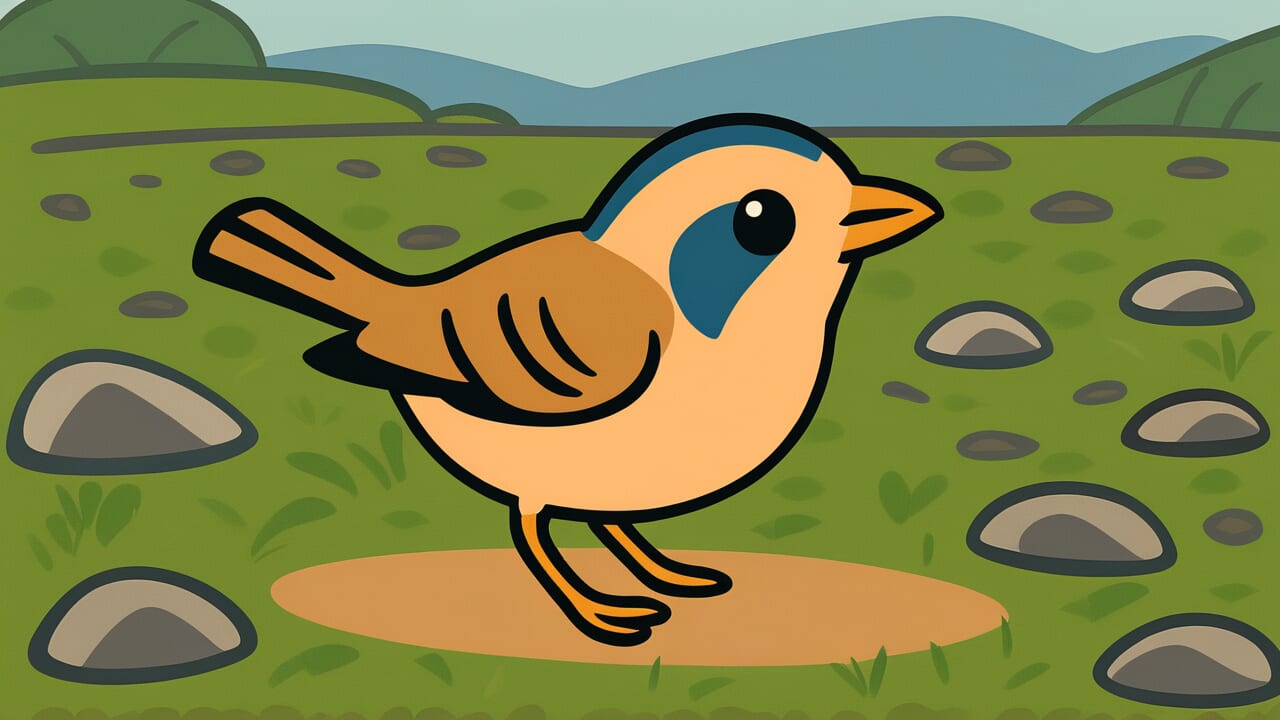How to Read “Throwing pebbles at a sparrow field”
Suzume hara e tsubute
Meaning of “Throwing pebbles at a sparrow field”
“Throwing pebbles at a sparrow field” is a proverb that means habits formed in childhood or hobbies learned in youth don’t easily change even as you grow older.
The expression comes from the image of someone who threw stones at sparrows in fields as a child. This behavior becomes so ingrained in their body that they unconsciously do the same thing even as an adult.
This proverb teaches us how deeply rooted human habits can be. Actions repeated during youth get carved into our bodies and minds without us realizing it.
Even when we consciously try to change them, these habits resist. This applies not just to bad habits or vices, but to good habits too. It shows a fundamental aspect of human nature.
People still use this saying today when describing habits from childhood that persist into adulthood. It also applies when explaining how hobbies or preferences from youth last a lifetime.
The proverb carries an educational message. It shows the power of habits and suggests how important early education and environment really are.
Origin and Etymology
No clear written records explain the origin of this proverb. However, we can make interesting observations from how the phrase is constructed.
“Throwing pebbles at a sparrow field” describes the scene of stones being thrown at sparrows in an open field. Sparrows live near human settlements and have been familiar birds to Japanese people since ancient times.
Children playing in fields and throwing stones at flocks of sparrows was likely a common sight in old Japanese villages and towns.
This expression came to mean “childhood habits don’t change” based on a simple observation. The experience of throwing stones at sparrows as a child stays in the body even into adulthood.
When you see sparrows in a field, you unconsciously want to pick up a stone and throw it. This automatic action symbolizes how deeply childhood habits are embedded.
The use of the old word “tsubute” (pebble) suggests this proverb has existed for quite a long time. Through the universal behavior of children’s play, it captures the essence of human nature.
You can feel the sharp observational skills of our ancestors in this expression.
Usage Examples
- My father still can’t shake his gambling habit from his youth. It’s truly throwing pebbles at a sparrow field.
- They say childhood habits are like throwing pebbles at a sparrow field, so I want to help fix them early.
Universal Wisdom
“Throwing pebbles at a sparrow field” teaches us about the frightening persistence of human habits. Why do childhood habits and youthful hobbies remain so deeply rooted within us?
The answer lies in the flexible nature of the young brain. It has a special quality that deeply imprints experiences. Actions repeated in childhood don’t just become memories.
They become part of your body and patterns in your thinking. When you see sparrows in a field, you want to throw stones. This unconscious reaction is the true nature of habit.
This proverb has been passed down through generations because it captures a universal truth about human resistance to change. We may think “I’ll change” with our rational minds.
But habits ingrained in our bodies don’t disappear easily. There’s something rooted deep in human nature that willpower alone cannot overcome.
At the same time, this proverb offers hope. If bad habits are hard to break, then good habits also become lifelong treasures. What you learn in youth greatly influences your entire life.
That’s why our ancestors emphasized the importance of childhood education and environment in these few words. Because people are creatures resistant to change, the beginning matters most.
When AI Hears This
A sparrow weighs only about 20 grams. That’s the same as a single AA battery. To survive with such a small body, a sparrow must eat about 30 percent of its body weight daily.
That means 6 grams of food every day. Small birds have a large surface area compared to their volume, so they burn enormous energy just maintaining body temperature.
Optimal foraging theory reveals an interesting fact here. This theory states that “animals behave to maximize the difference between energy gained and energy spent.”
Consider a human trying to catch sparrows by throwing pebbles. You must pick up stones, aim carefully, and throw repeatedly. This takes at least several minutes to tens of minutes.
The calories burned during this effort exceed 100 kilocalories. Meanwhile, the energy obtained from one caught sparrow is at most 30 kilocalories, excluding feathers and bones.
This hunt operates at a complete loss. You can’t even recover one-third of the energy you invested. Natural predators like cats or hawks target sparrows because sparrows provide sufficient energy for them.
But for large animals like humans, sparrows are biologically not worth chasing. This proverb intuitively captures this ecological imbalance.
Lessons for Today
This proverb teaches modern people a truth: the choices you make right now create your future. Because habits are hard to change, good habits you start today become lifelong treasures.
Young people especially should receive these words positively. Don’t fear bad habits. Instead, see this as a chance to consciously build good ones.
Daily reading, regular routines, kindness toward others—these small accumulations eventually become your character itself.
For those already adults, hope remains. Youthful habits run deep, but understanding this reveals how to deal with them. Complete elimination may be difficult, but you can overwrite old habits with new ones.
It takes time, but with conscious effort, people can change at any age.
What matters is making the power of habit your ally, not your enemy. Don’t lament your resistance to change. Instead, carefully nurture good habits precisely because they persist.
This positive attitude will enrich your life.



Comments